




- BRNN
- BRI News
- BRNN News
- Database
Official Documents Polices and Regulations
Inter-government Documents International Cooperation BRI Countries
Business Guide Economic Data BRI Data
Trade
Investment Projects Latest projects
Cases - Content Pool
Allium mongolicum, an Asian variety of wild onion renowned for its drought and cold resistance, edible value, and sand-fixing function, is not only improving the ecology of Minqin county in Wuwei city, northwest China's Gansu Province, but also boosting the local economy.
Nestled between the Badain Jaran and Tengger deserts, the county's year-round arid conditions provide an ideal environment for this wild onion species to flourish.
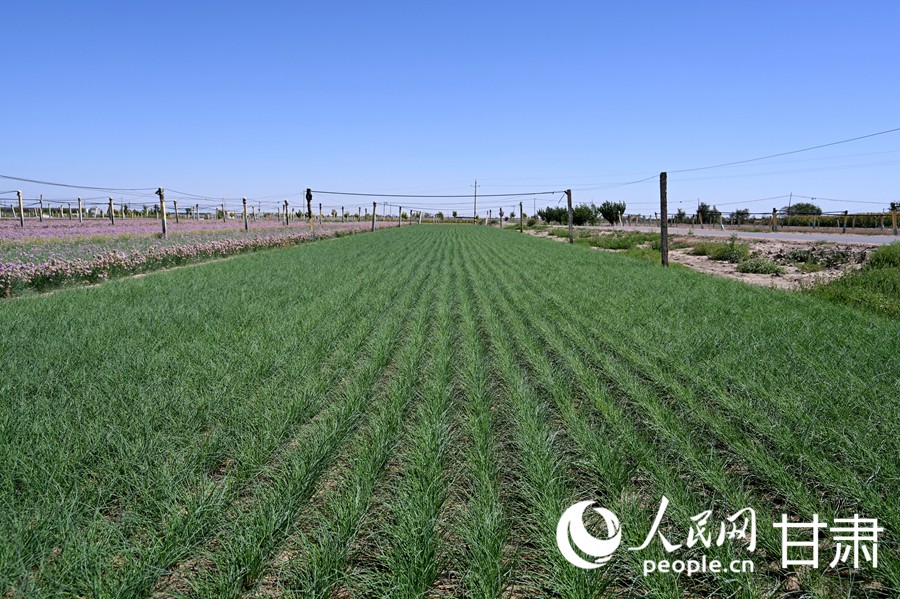
Photo shows a wild onion field in Bayi village, Daba town, Minqin county, Wuwei city, northwest China's Gansu Province. (People's Daily Online/Xi Juanjuan)
The county has made the wild onion sector an advantageous, water-efficient industry, achieving year-round production by combining greenhouse and open-field growing methods, alongside a model that integrates bases, farming households, and cooperatives.
"I cultivate the wild onion on over 20 mu (about 1.33 hectares) of land with seven greenhouses," said Ye Huixiang, a wild onion producer with 15 years of cultivation experience from Bayi village in Daba town of Minqin county.
Ye highlighted the crop's advantages, which include low water consumption, minimal production costs, and a long profit cycle. "Market demand has grown significantly in recent years, which has greatly boosted our confidence," Ye said.
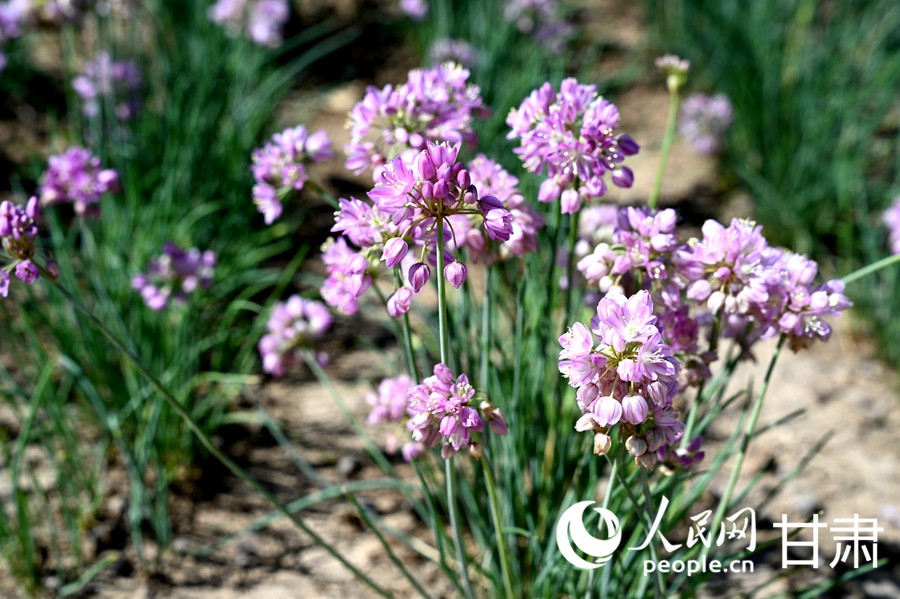
Photo shows flowers of wild onions in Minqin county, Wuwei city, northwest China's Gansu Province. (People's Daily Online/Xi Juanjuan)
The thriving wild onion industry has not only filled growers' pockets but also created stable employment opportunities for residents, who can work in the fields and processing facilities close to home.
Bayi village serves as the hub of the county's wild onion industry. At the local cultivation base, workers are busy harvesting, packaging, weighing, and loading the crop for transport.
"During the agricultural off-season, I work here harvesting wild onions, earning at least 200 yuan ($28.07) a day through piece-rate pay," said a female villager surnamed Tian.
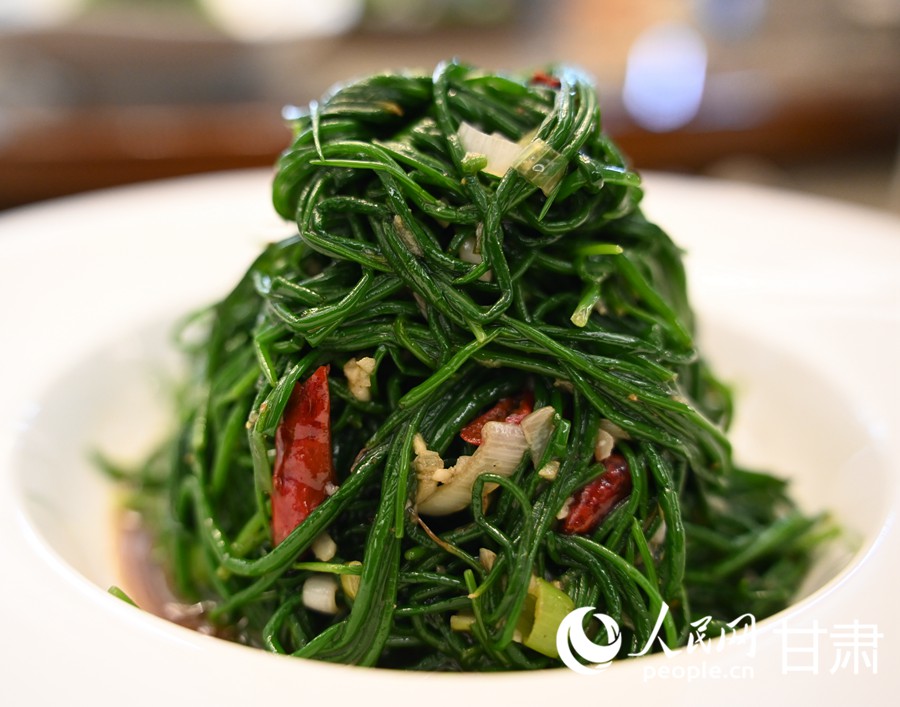
Photo shows a dish made with wild onions in Minqin county, Wuwei city, northwest China's Gansu Province. (People's Daily Online/Shao Lan)
To date, Daba town has developed 700 greenhouses, 3,000 mu of open fields, and 50 hoop houses for wild onion cultivation. This has expanded artificial wild onion planting to 15,000 mu in the county, helping the industry to reach an output value of over 200 million yuan and Minqin county to become China's largest base for the artificial cultivation and sale of wild onions.
"We strictly adhere to green, organic, and pollution-free cultivation standards, applying farmyard manure and organic fertilizers during growth periods to keep our wild onions clean, flavorful, and environmentally friendly," said Zhen Zuojun, Party chief of Bayi village.
The village aims not only to produce premium-quality wild onions but also to extend the industry chain. Partnering with multiple enterprises, it has developed deep-processing products while distributing wild onions and related goods through both online and offline channels to markets in the Ningxia Hui Autonomous Region, Inner Mongolia Autonomous Region, Xinjiang Uygur Autonomous Region, Hebei Province, Guangzhou city, and beyond, according to Zhen.
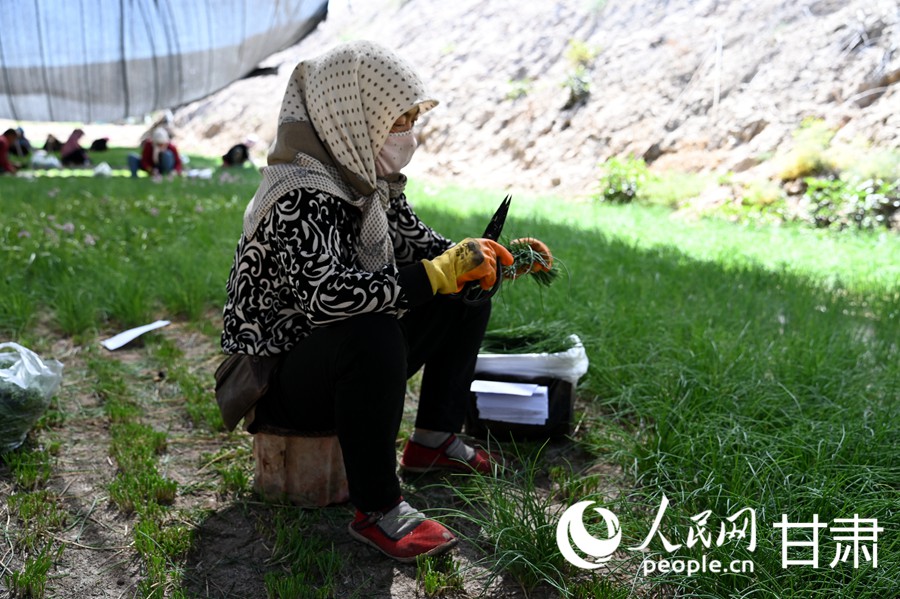
A worker harvests wild onions in Minqin county, Wuwei city, northwest China's Gansu Province. (People's Daily Online/Xi Juanjuan)
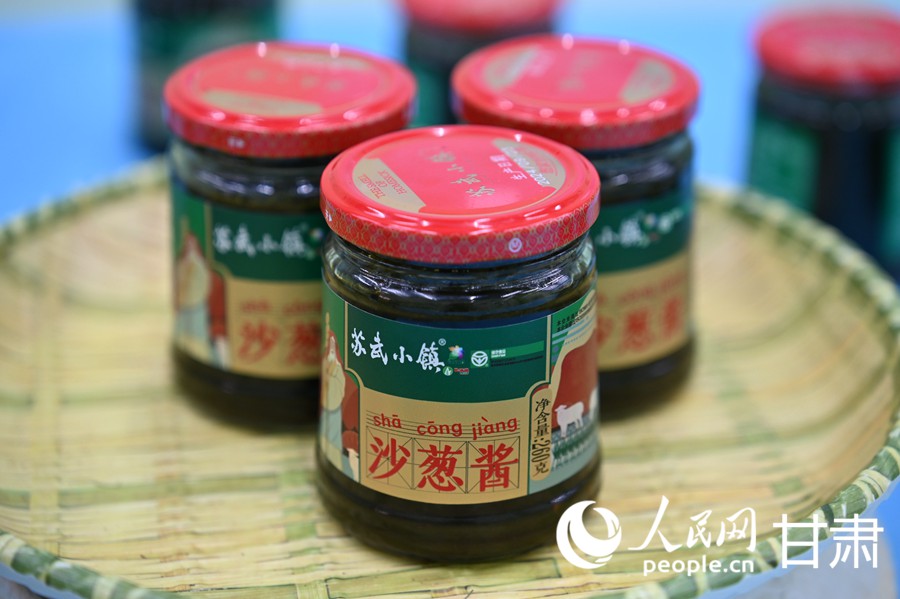
Photo shows wild onion sauce. (People's Daily Online/Xi Juanjuan)

Tel:86-10-65363107, 86-10-65368220, 86-10-65363106